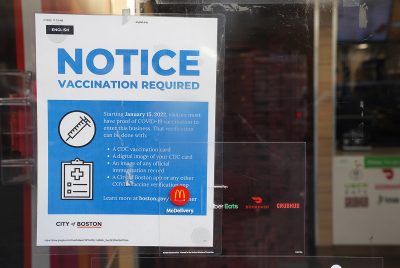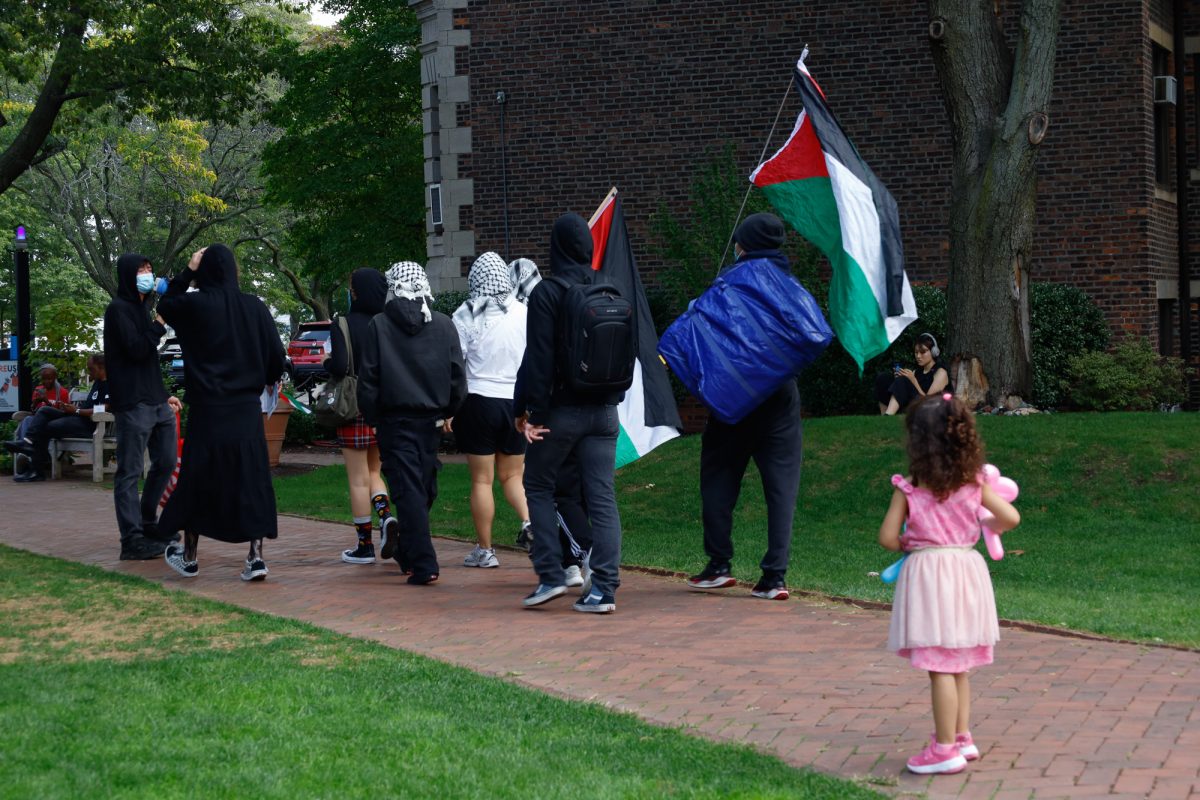
Mayor Michelle Wu’s B Together policy — a mandate requiring proof of one COVID-19 vaccine dose to enter certain indoor spaces in Boston — came into effect Jan. 15 to help curb surging cases of COVID-19 in the City and encourage unvaccinated Bostonians to get vaccinated.
The initiative applies to indoor spaces like restaurants, gyms and entertainment facilities including movie theaters and concert venues.
“We are working every day to end this pandemic,” Wu said at the press conference. “Today’s launch of our B Together policy means that we are taking important steps on the policy side to close those gaps and continue protections for our workforce and for our residents.”
Bostonians must show a digital image or physical copy of their CDC vaccination card, an image or printout of any official immunization record or other accepted COVID-19 vaccination verification apps when entering an indoor space, according to the City’s website.
The protocols instituted Saturday are part of the first phase of the B Together policy. Three more phases are planned — proof of full vaccination will be required for people aged 12 and up starting Feb. 15, children aged five to 11 must show proof of one dose beginning Mar. 1, while those aged five and up must provide proof of full vaccination May 1 and onwards.
Wu also said the City will continue to support local businesses in implementing the policy, noting how signs have been distributed to restaurants and businesses outlining vaccination requirements to ease their burden of explaining the policy.
“[Small businesses] continue to be anchors of our communities,” Wu said at the conference. “In other cities that have these policies, once it is fully implemented, it becomes part of the culture and the regular rhythm.”
Ahmed Abdalla, manager of Jonquils Café & Bakery on Newbury St., said in an interview that implementing the B Together initiative at the cafe was “quite challenging.”
He added that, sometimes, customers will try to evade showing their vaccination status by asking for their food to-go but then attempt to sit down at a table.
“In general, most people cooperate,” Abdalla said. “It puts us into a difficult position because we don’t want to make the customer feel like we’re harassing him or her.”
Even those who are vaccinated have had trouble dining at restaurants. Osiris Ding, a senior in the Questrom School of Business, said he was denied entry into Copley Square Fogo de Chão Brazilian Steakhouse because they didn’t accept his Chinese vaccination documents.
“I had the school [proof of vaccination] that we had to upload at the start of the semester,” he said, referring to the proof of vaccination documentation that BU requires. “But they said that’s not okay… it has to be a CDC card and it has to be along with my ID.”
To help people present their vaccine cards easily, the City launched the B Together app. Users can upload a picture of their vaccine cards and can even store pictures of their family members’ cards as well.
Ding said he might download the B Together app because it would be easier than having to bring his passport everywhere he goes.
“Of course, it’s always better to be safer,” he said. “And it will make me feel a little bit secure if I can be sure that I’m sharing a space where I know everyone is vaccinated.”
Abdalla emphasized the need for cooperation while Boston still grapples with the pandemic.
“It’s not fun for us to keep asking [for proof], but it’s also not fun for customers, at least some customers, to be asked,” he said. “But, it’s a reality, and we all have to cooperate.”
Speaking at the press conference, Wu stressed her support for businesses that will have to uphold the new vaccine mandate policy.
“I will continue to stand with [small businesses], support them and make sure that the City is providing every resource we can to get our businesses back up and running and support our economy as we recover,” Wu said.
























































































































